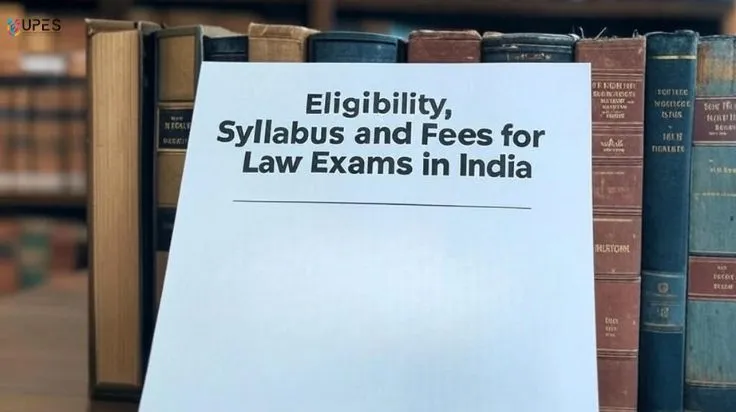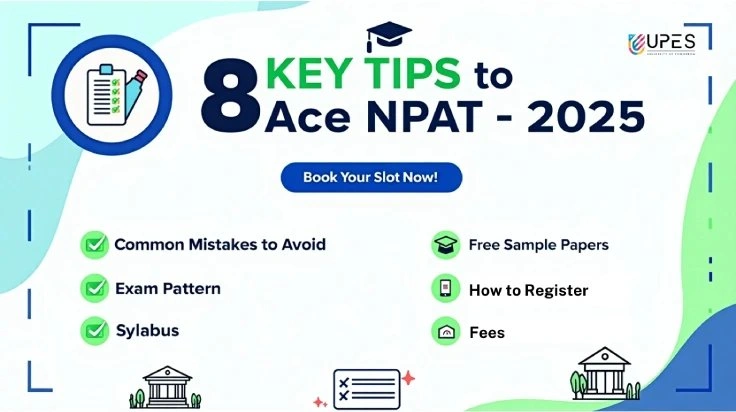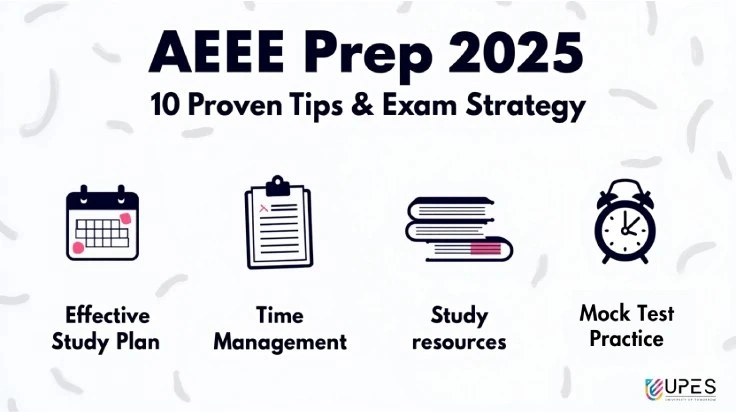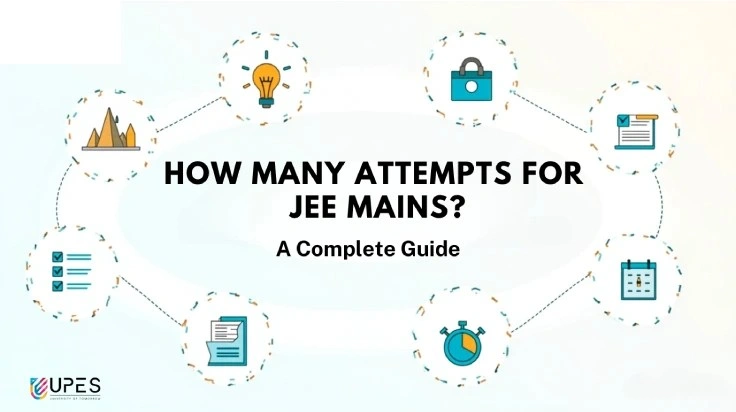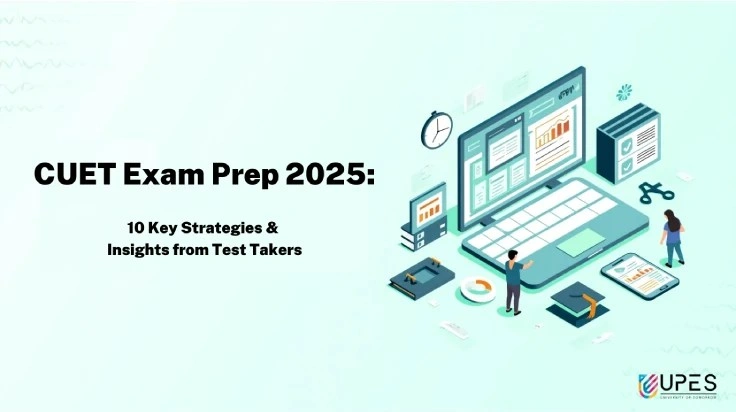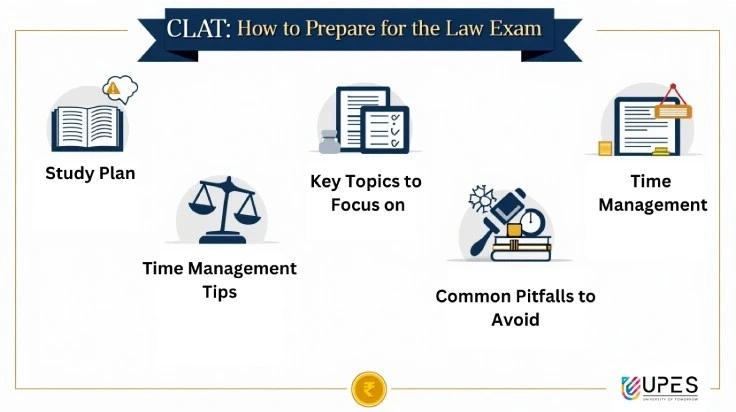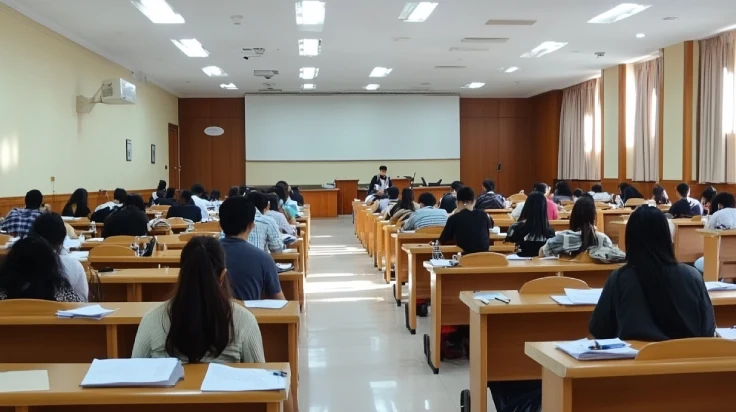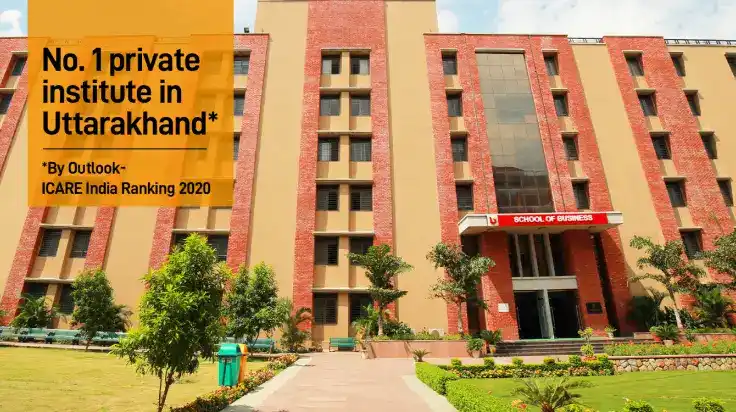SLAT Exam: How to Prepare, Exam Date, Registration, Syllabus, Mock Test 2025
- UPES Editorial Team
- Published 05/02/2025
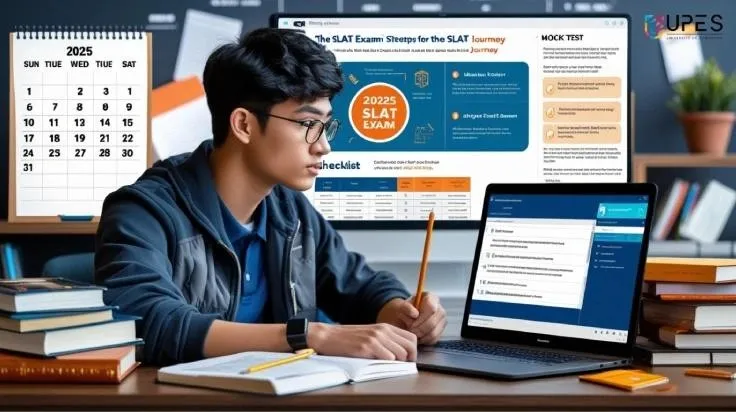
Table of Contents:
Do you aspire to become a lawyer? Do you wish with all your heart, to pursue law? Let us acquaint you with another All-India Exam which can help you realise you this dream of yours. Remember, there are more law exams than just CLAT!
Famously abbreviated as SLAT, the Symbiosis Law Admission Test is gateway for students aspiring to join the prestigious Symbiosis Law School (SLS) for undergraduate law programs. Known for its competitive nature and unique format, the SLAT exam requires a well-thought-out strategy to ace it.
Ace the exam and get a chance to study in one of the campuses of Symbiosis Law Schools, namely SLS-Pune, SLS- Noida, SLS- Nagpur and SLS-Hyderabad. This comprehensive guide covers everything you need to know about the SLAT exam, including exam dates, registration, syllabus, eligibility, preparation strategies, and quick exam tips.
What is SLAT, and What Makes It Unique?
SLAT is a national-level entrance exam conducted by Symbiosis International University (SIU) for admission to BA LLB and BBA LLB programs.
What makes SLAT unique?
- WAT Component: Apart from the multiple-choice questions (MCQs), candidates are evaluated through a Writing Ability Test (WAT), which assesses their ability to articulate and analyze.
- Critical Thinking: The Logical Reasoning and Analytical Reasoning sections focus heavily on your ability to think critically—a skill crucial for law aspirants.
- Personal Interaction (PI): Post the exam, shortlisted candidates undergo a PI round, making this exam holistic
SLAT Exam Date 2025 and Registration Details
- Exam Dates: SLAT 2025 is expected to be conducted in May 2025 (exact dates to be announced).
- Registration: Likely to begin in December 2024 and close in April 2025.
- Mode: Computer-Based Test (CBT).
- Registration Fee: ₹2,000 (subject to change).
- Official Website for Registration: www.set-test.org.
SLAT Eligibility Criteria 2025
Before applying, ensure you meet the following eligibility requirements:
1. Educational Qualification:
- Must have passed or be appearing for Class 12 from a recognized board.
- Minimum marks: 45% for General category and 40% for SC/ST candidates.
2. Age Limit:
- No age limit is specified, but candidates should typically be under 20 years of age at the time of admission.
SLAT Exam Pattern 2025
The core to cracking any exam lies in understanding it fully. To crack the SLAT exam, first and foremost, acquaint yourself with the exam pattern. Understanding the exam pattern is crucial for effective preparation. Here's a breakdown:
| Section | Number of Questions | Marks Allotted |
| Logical Reasoning | 12 | 12 |
| Legal Reasoning | 12 | 12 |
| Analytical Reasoning | 12 | 12 |
| Reading Comprehension | 12 | 12 |
| General Knowledge | 12 | 12 |
| Total | 60 | 60 |
- Duration: 60 minutes (MCQs) + Writing Ability Test (WAT).
- WAT: Essay writing in 30 minutes on a given topic.
- Marking Scheme: No negative marking.
SLAT Syllabus 2025
Let us delve into what all is asked of candidates appearing for the exam. SLAT Syllabus is a mix of components useful in the life of a lawyer who needs to have a smartness of mind and diplomacy along with legal expertise.
Logical Reasoning
- Coding-Decoding, Puzzles, Blood Relations, Series, Analogies, and Syllogisms.
Legal Reasoning
- Principle-Fact-based questions, Law of Torts, Contracts, Criminal Law basics, and Constitution.
Analytical Reasoning
- Data Interpretation, Arithmetic, Percentages, Ratio and Proportion, and Logical Patterns.
Reading Comprehension
- Passages with questions on themes, vocabulary, and critical reasoning.
General Knowledge
- Current Affairs, Indian Polity, Economy, Sports, and Legal Developments.
The Ultimate SLAT Preparation Strategy
Acing an exam for which lakhs of candidates appear is no piece of cake! We understand your nervousness and so we bring to you a comprehensive study guide to come out of the exam with flying colours:
1. Build a Solid Foundation
- Logical Reasoning: Start with books like RS Aggarwal’s Logical Reasoning and practice puzzles daily.
- Legal Reasoning: Develop clarity in fundamental legal concepts. Bare Acts and legal GK guides are your best friends.
- Reading Comprehension: Read editorials from The Hindu or Indian Express to improve comprehension skills and vocabulary.
- General Knowledge: Make a habit of following Daily Current Affairs and law-related updates.
2. Master Time Management
The 60-minute time limit requires efficient planning:
- Attempt high-scoring sections (Logical and Analytical Reasoning) first.
- Dedicate a specific time to each section and stick to it.
3. Practice WAT Like a Pro
- Focus on structure and clarity. Practice writing essays on trending legal and social topics.
- Keep the introduction, body, and conclusion concise.
4. Solve Mock Tests and Previous Papers
- Solve at least 15 mock tests and all previous year papers. Analyze your mistakes to identify weak areas.
5. Leverage Flashcards and Notes
- Create flashcards for GK and key legal concepts. Review them daily to retain information better.
6. Stay Mentally Fit
- Engage in meditation or yoga to reduce exam stress.
- Follow the Pomodoro technique: Study for 25 minutes and take a 5-minute break to maintain focus.
Common Mistakes to Avoid
It is not just about doing well and studying everything. It is also about making least number of mistakes. Remember, in a crowd of lakhs, a single silly mistake can cpost you your seat and rank!
- Skipping WAT Preparation: This can cost you admission, even with a high score in MCQs.
- Neglecting Current Affairs: Stay updated daily, especially with legal developments.
- Overloading Resources: Stick to 2-3 reliable books. Avoid jumping from one material to another.
- Ignoring the PI Round: Prepare for common PI questions like “Why law?” or “What inspired you to join SLS?”
Quick Tips:
- Attempt full-length mock tests under real-time conditions.
- Revise flashcards, key formulas, and mock test errors.
UPES: Your Perfect Destination After SLAT
At UPES, we recognize the importance of SLAT in shaping the careers of aspiring law students. Here’s why UPES stands out as a top choice:
| Moots Courts | Seminars | Legal Competitions | Draft Writing | Legal Internships |
- Specialized Programs: UPES offers undergraduate law courses like B.A. LL.B. and BBA. LL.B., with emphasis on global exposure and opportunities.
- Industry-Academia Linkage: Our curriculum is designed in collaboration with industry leaders, ensuring students are career-ready.
- State-of-the-Art Facilities: From modern moot courts to vibrant campus life, UPES provides a holistic learning environment.
- Career Support: With strong placement records, UPES ensures students transition smoothly into their professional lives.
Explore UPES programs tailored to your career goals at UPES Official Website.
Conclusion
Preparing for the SLAT exam requires a clear strategy and consistent effort. Start early, stay organized, and focus on mastering the syllabus. With dedication, cracking the SLAT exam and securing a spot in a top law school is well within reach.
Remember, the journey doesn’t end with cracking SLAT—it’s only the beginning. Institutions like UPES ensure that your academic and legal, professional growth continues seamlessly.
Keep this guide handy and start your SLAT preparation journey today. Best of luck!
UPES Editorial Team
Written by the UPES Editorial Team
UPES Admission Enquiry
Subscribe to UPES Blogs
Join our community for exclusive stories, insights, and updates
By clicking the "Subscribe" button, I agree and accept the privacy policy of UPES.









